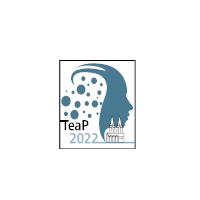An alternative to copy-paste reporting: Create computationally reproducible, submission-ready, APA-style manuscripts in R with papaja
A Pre‐Conference Workshop at the TeaP 2022 in Cologne
Saturday, March 19, 10am - 5pm
Instructors
Frederik Aust (University of Amsterdam)
Marius Barth (University of Cologne)
Description
When reporting quantitative results, psychologists routinely engage in copy-paste reporting: Statistical results are copied from the output of an analysis software and pasted into a word processor. Copy-paste reporting is tedious. If the analytic approach changes during manuscript preparation or revision, copy-pasting starts anew. More importantly, copy-paste reporting is error-prone: A substantial number of published journal articles report inconsistent statistics (Brown & Heathers, 2016; Nuijten et al., 2016; Petrocelli, Clarkson, Whitmire, & Moon, 2013). Moreover, even with the original data in hand, reported results are often difficult and sometimes impossible to reproduce (Artner et al., 2020; Eubank, 2016; Hardwicke et al., 2018; Stodden, Seiler, & Ma, 2018). Dynamic documents are a time-saving, fault-preventing alternative to copy-paste reporting. By fusing manuscript and analysis scripts, dynamic documents automate reporting of results, ensure that the reported statistics are consistent, and facilitate documentation and reproduction of analyses. In this hands-on workshop we provide a primer on preparing dynamic, submission-ready, APA-style manuscripts with the R package papaja. Participants will learn how to automate reporting of statistics including tables and plots. Basic prior knowledge of R is required.
Frederik Aust (postdoctoral researcher, University of Amsterdam) develops and tests mathematical models of human cognition using Bayesian statistics. Marius Barth (postdoctoral researcher, University of Cologne) investigates the cognitive processes involved in sequential learning. They both try to improve the computational reproducibility of psychological science and started their work on papaja in 2014.
Participants
20
Language
English
